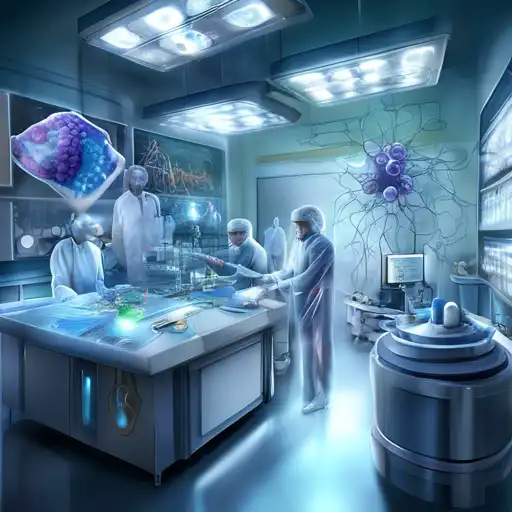Introduction to Nanotechnology in Medicine
Nanotechnology, the science of manipulating matter at the atomic and molecular level, is set to revolutionize the medical field. With its ability to operate at the same scale as biological molecules, nanotechnology offers unprecedented opportunities for diagnosis, treatment, and prevention of diseases. This article explores the groundbreaking advancements and potential of nanotechnology in medicine.
The Promise of Nanotechnology in Healthcare
Nanotechnology in medicine, often referred to as nanomedicine, involves the use of nanoparticles to deliver drugs, heat, light, or other substances to specific cells in the body. This precision targeting minimizes damage to healthy cells and maximizes the therapeutic effects, heralding a new era in treatment methodologies.
Key Applications of Nanotechnology in Medicine
- Drug Delivery: Nanoparticles can be engineered to deliver drugs directly to diseased cells, reducing side effects and improving efficacy.
- Diagnostic Techniques: Nanotechnology enhances imaging techniques, allowing for earlier and more accurate diagnosis of diseases.
- Regenerative Medicine: Nanomaterials are being used to repair or replace damaged tissues and organs, offering hope for conditions previously deemed untreatable.
- Cancer Treatment: Targeted nanoparticle therapies are transforming oncology by attacking cancer cells without harming surrounding healthy tissue.
Challenges and Ethical Considerations
Despite its potential, the integration of nanotechnology into medicine faces several challenges. These include technical hurdles, regulatory issues, and ethical concerns regarding privacy and the long-term effects of nanoparticles on the human body and environment.
Overcoming Obstacles
Researchers and policymakers are working together to address these challenges, ensuring that nanotechnology's benefits can be realized safely and equitably. Collaborative efforts are essential to navigate the complexities of this emerging field.
The Future of Nanotechnology in Medicine
The future of nanotechnology in medicine is bright, with ongoing research paving the way for innovative treatments and diagnostic tools. As we continue to explore the nanoscale, the possibilities for improving human health are limitless.
For more insights into the future of healthcare technology, explore our articles on medical innovation and future medicine.
Conclusion
Nanotechnology in medicine represents a frontier of medical science, offering solutions to some of the most challenging health issues. With continued research and development, nanotechnology will undoubtedly play a pivotal role in shaping the future of healthcare.
